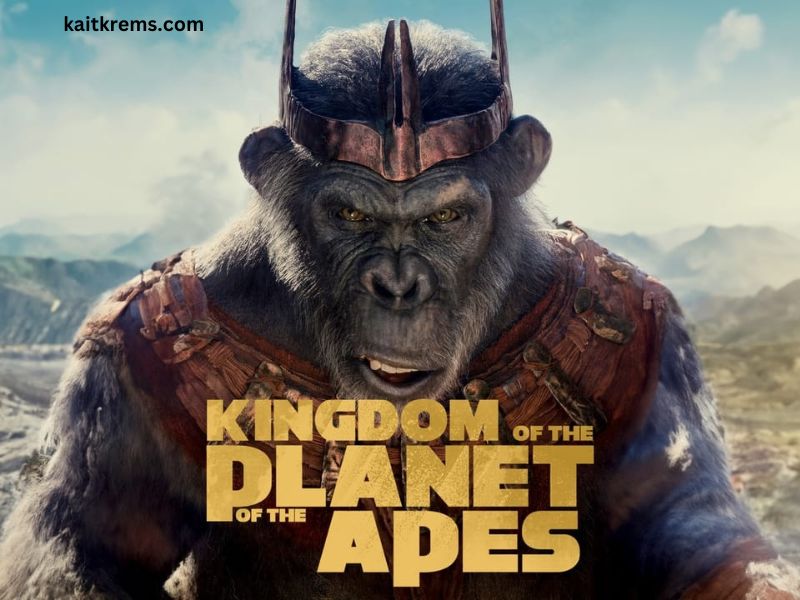The “Planet of the Apes” franchise has captivated audiences since the release of the original film in 1968. With its thought-provoking themes of evolution, society, and the human condition, it has continued to resonate across generations. The latest installment, “Kingdom of the Planet of the Apes,” expands this rich universe, exploring new narratives while honoring the legacy of its predecessors. This article delves into the film’s plot, characters, themes, and the impact it has on the franchise as a whole.
A Brief History of the Franchise
Before diving into the latest film, it’s important to understand the context of the “Planet of the Apes” franchise. The original film, based on Pierre Boulle’s novel, introduced audiences to a dystopian future where apes had evolved into the dominant species, while humans had become primitive and subjugated. This premise sparked a series of sequels, a television series, and a reboot trilogy that began with “Rise of the Planet of the Apes” in 2011. Each iteration has explored the complexities of identity, power dynamics, and the consequences of humanity’s actions.
Setting the Stage: The World of “Kingdom of the Planet of the Apes”
“Kingdom of the Planet of the Apes” is set several years after the events of the reboot trilogy, particularly following the events of “War for the Planet of the Apes.” The world has evolved, showcasing a new society where apes have established themselves as the ruling class. However, the remnants of humanity still exist, presenting new challenges and conflicts.
The film introduces a variety of ape factions, each with its unique culture and beliefs, reflecting the complexities of their society. This setting allows for a rich exploration of themes such as governance, coexistence, and the impact of history on societal development.
Plot Overview
At the heart of “Kingdom of the Planet of the Apes” is the struggle for power and survival in a world where the balance between apes and humans remains tenuous. The film follows multiple characters across different factions, each with their motivations and conflicts.
The Protagonists
The primary protagonist, a young ape named Zira, is a skilled strategist and diplomat. She seeks to unite the different ape factions against a common threat posed by a rogue group of humans who are determined to reclaim dominance over the planet. Zira’s character embodies the themes of unity and leadership, showcasing the potential for a more peaceful coexistence.
The Antagonists
Opposing Zira is a powerful human leader who believes that the only way to reclaim their place in the world is through violence and subjugation. This character represents the darker aspects of humanity, highlighting the destructive nature of power when wielded without empathy or foresight.
Conflict and Resolution
The film’s central conflict revolves around Zira’s efforts to broker peace among the apes while facing the aggressive tactics of the human faction. As tensions escalate, she must navigate betrayals, alliances, and moral dilemmas, ultimately leading to a climactic confrontation that tests the limits of her leadership and the strength of the ape society.
Themes and Motifs
“Kingdom of the Planet of the Apes” dives deep into several themes that resonate with contemporary audiences.
The Nature of Power
One of the film’s central themes is the nature of power and its corrupting influence. Through the contrasting leadership styles of Zira and the human antagonist, the film explores how power can be used for both good and ill. Zira’s approach is rooted in diplomacy and cooperation, while her opponent relies on fear and aggression, ultimately questioning which method leads to a sustainable future.
Coexistence and Conflict
The film also tackles the theme of coexistence between species. The tension between apes and humans serves as a metaphor for broader societal issues, such as racism, classism, and the struggle for equality. Zira’s journey illustrates the challenges of fostering understanding and compassion in a world filled with fear and prejudice.
The Consequences of History
“Kingdom of the Planet of the Apes” reflects on the consequences of history, showing how past actions shape present realities. The legacy of humanity’s treatment of the planet and its inhabitants looms large over the story, serving as a cautionary tale about the importance of accountability and the need for change.
Visual and Cinematic Elements
The film’s visual storytelling is a significant aspect of its impact. The use of advanced CGI technology allows for stunning depictions of the apes and their environment, creating a believable and immersive world. The cinematography captures both the beauty of the landscape and the intensity of the conflicts, enhancing the emotional depth of the narrative.
Music and Sound Design
The score, composed by a renowned musician, plays a crucial role in establishing the film’s tone. The music elevates key moments, from the tension of impending conflict to the emotional resonance of personal sacrifices. Sound design further immerses the audience in this world, with the sounds of nature and the dynamic interactions between characters enhancing the overall experience.
Character Development
Character development is a highlight of “Kingdom of the Planet of the Apes.” Zira’s growth as a leader, her relationships with allies and adversaries, and her internal struggles provide a rich emotional landscape. The film takes the time to delve into the backstories of both apes and humans, allowing audiences to understand their motivations and the stakes involved.
The Role of Supporting Characters
Supporting characters, such as Zira’s allies and the members of the human faction, are well-developed and serve to enhance the story’s complexity. Their diverse perspectives add depth to the narrative, illustrating how different experiences shape their beliefs and actions.
Reception and Impact
Upon its release, “Kingdom of the Planet of the Apes” received widespread acclaim from critics and audiences alike. The film’s ability to balance action, drama, and philosophical inquiry resonated strongly, reinforcing the franchise’s reputation for depth and relevance.
Box Office Performance
The film performed well at the box office, drawing both longtime fans and new viewers. Its success further cements the “Planet of the Apes” franchise as a vital part of contemporary cinema, capable of evolving while staying true to its roots.
Future of the Franchise
With the success of “Kingdom of the Planet of the Apes,” discussions of potential sequels and spin-offs have emerged. The rich world-building and character arcs introduced in this film provide ample opportunities for future exploration, ensuring that the franchise remains a focal point in the science fiction genre.
Conclusion
“Kingdom of the Planet of the Apes” is a testament to the enduring power of the “Planet of the Apes” franchise. Through its compelling narrative, rich themes, and well-developed characters, the film not only honors its legacy but also pushes the boundaries of storytelling in science fiction. As audiences continue to grapple with the complex issues of power, coexistence, and the consequences of history, this film stands as a poignant reminder of the lessons learned from our past and the possibilities for our future. The kingdom may be that of apes, but the messages resonate deeply with the human experience, inviting us to reflect on our own roles in shaping the world around us.






